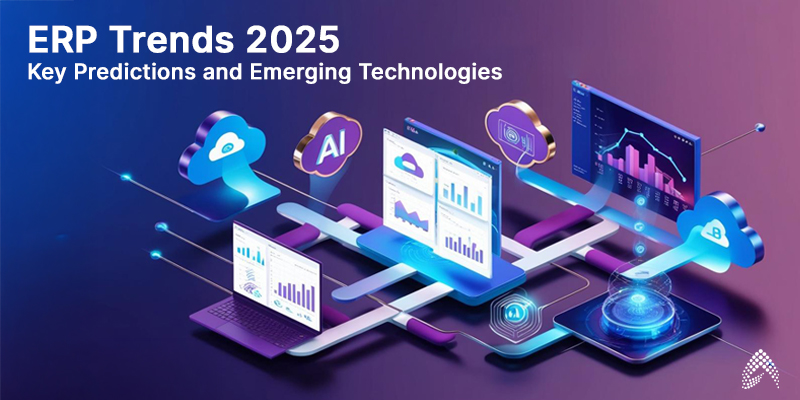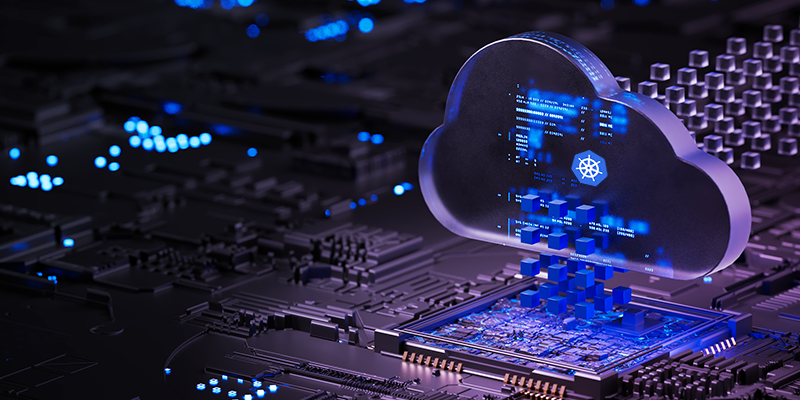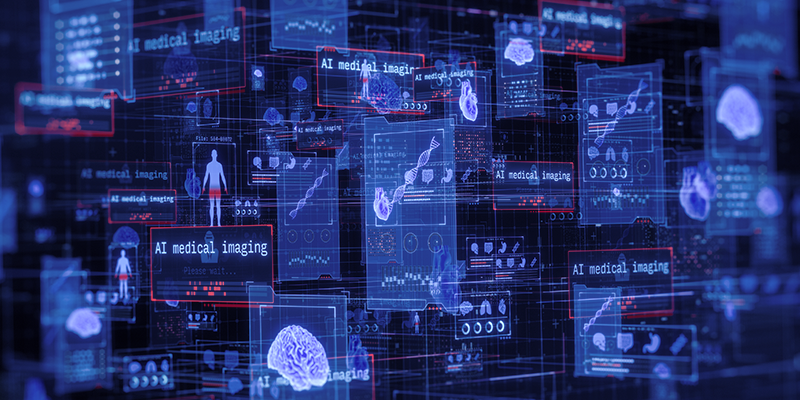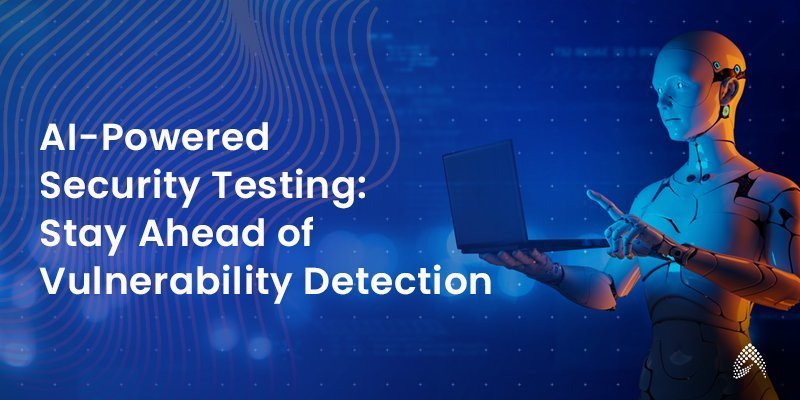The Future of ERP: Predictions and Trends Shaping the Industry for 2025

Enterprise Resource Planning (ERP) systems have long been the cornerstone of business operations. From managing finances and human resources to streamlining supply chains and customer relationships, ERP systems help businesses operate efficiently and effectively. As we approach 2025, however, ERP systems are set to evolve in response to rapid technological advancements. These systems are becoming smarter, more flexible, and more user-friendly than ever before.
As ERP systems evolve, the power of artificial intelligence (AI), cloud technology, and industry-specific solutions will define how businesses navigate future challenges and opportunities. These innovations will enable businesses to optimize operations, improve decision-making, and enhance customer experiences. In this article, we will explore the key trends and predictions that are expected to shape the future of ERP systems in the coming years.
AI-Driven Insights and Automation: Maturing and Evolving Capabilities
Artificial Intelligence (AI) has already transformed the ERP landscape, making predictive analytics, machine learning algorithms, and automation standard features. But as businesses’ needs evolve, AI’s role in ERP is set to become even more sophisticated. Predictive analytics will expand to analyze increasingly complex data, offering precise insights that empower businesses to adapt swiftly. For example, ERP systems equipped with AI can fine-tune forecasts for inventory needs, production schedules, and customer demand by analyzing more diverse data sources, improving the overall decision-making process.
Additionally, advancements in Robotic Process Automation (RPA) will deepen the impact of AI, automating not just routine tasks but more complex workflows. This ongoing evolution will allow employees to focus on strategic initiatives rather than repetitive, time-consuming work, thus enhancing efficiency and innovation. In this way, ERP systems are moving from simply automating tasks to being active participants in business optimization, adapting to the unique needs of each organization.
Cloud-Native ERP: Accelerating Digital Transformation
While AI continues to transform the decision-making and efficiency of ERP systems, cloud technology is evolving alongside it to further accelerate digital transformation and scalability for businesses. Cloud-native ERP solutions are well established, offering businesses flexibility, scalability, and real-time updates that were difficult to achieve with on-premises solutions. Yet, as technology and business needs grow, the cloud continues to evolve. We’re entering an era where multi-cloud and hybrid-cloud options provide organizations with greater control over data, enhanced security, and options to distribute workloads for maximum efficiency.
The continuous improvements in cloud ERP mean companies benefit from fast deployments, real-time updates, and lower infrastructure costs. This adaptability is crucial as businesses navigate rapidly changing markets. By embracing advanced cloud-native ERP systems, companies can optimize operations, reduce downtime, and stay resilient—ensuring they’re not only equipped for today but also prepared for future changes.
Industry-Specific ERP Solutions: Tailoring for Precision
As ERP cloud capabilities expand, businesses in specialized sectors are also finding value in more tailored ERP options. Industry-specific ERP solutions have gained momentum because traditional, one-size-fits-all systems often fall short for specialized sectors. Today, healthcare, manufacturing, retail, and other industries rely on ERP solutions designed for their unique workflows and compliance needs. As businesses look for even more tailored functionality, ERP providers are delivering refined solutions equipped with specific modules that address niche challenges within each industry.
Moving forward, the trend toward specialized ERP will accelerate, with systems that offer sector-specific capabilities for areas like logistics, finance, and education. This trend gives businesses a precise, competitive edge, as they can streamline operations, maintain compliance, and optimize performance using tools purpose-built for their industry’s requirements.
Integration with Emerging Technologies: Expanding Boundaries
As ERP systems evolve to meet the needs of diverse industries, they also integrate new and emerging technologies that broaden their applications. Integration with technologies like IoT, blockchain, and 5G is already shaping the ERP landscape, bringing real-time data, security, and connectivity into business operations. IoT devices are now commonly used to track inventory, monitor equipment health, and manage logistics, providing ERP systems with vast, real-time data that enhances visibility and control. As IoT technology becomes even more advanced, ERP systems will be able to leverage deeper insights to improve decision-making and predictive capabilities.
Blockchain, another technology already in use within ERP systems, is enhancing transparency and security, particularly in supply chain and financial transactions. As blockchain applications become more accessible, ERP solutions will integrate these capabilities more seamlessly, offering improved accountability and fraud reduction. Additionally, 5G will further revolutionize ERP systems by supporting real-time applications and expanding remote capabilities, allowing businesses to collaborate more effectively and manage operations on a global scale.
User Experience and Mobile-First Approach
The demands for flexibility and mobility in the modern workplace place increasing importance on user experience (UX) for ERP systems. As businesses increasingly rely on mobile and remote workforces, the user experience (UX) of ERP systems will become even more important. In the future, ERP systems will be designed with a focus on intuitive interfaces, mobile accessibility, and personalized experiences.
The next generation of ERP systems will offer user-friendly interfaces that are easy to navigate, even for those without technical expertise. With mobile-optimized ERP solutions, employees will be able to access critical business data and perform essential tasks from anywhere, whether they are in the office or on the go. This mobile-first approach will enable businesses to remain agile and responsive, regardless of location.
Additionally, personalized user experiences powered by AI and machine learning will tailor the ERP system to individual users’ needs and preferences. By improving user satisfaction and decision-making, these personalized features will drive productivity and engagement.
Trends Shaping the ERP Industry
Several broader trends are also shaping the future of ERP. These include digital transformation, data-driven decision-making, enhanced cybersecurity, and the rise of sustainable ERP solutions.
As organizations continue their digital transformation journeys, ERP systems will play a central role in enabling data-driven decision-making. By leveraging real-time data and advanced analytics, businesses can optimize operations, uncover new opportunities, and stay ahead of the competition.
With growing concerns over data security, ERP systems will also need to incorporate enhanced cybersecurity measures to protect sensitive business data from cyber threats. In addition, businesses will increasingly adopt sustainable practices in their ERP systems, ensuring that their operations are environmentally responsible and socially conscious.
Implementation Priorities and Quick Wins
While these ERP trends represent the future of business software, organizations don’t need to implement everything at once. Start with quick wins that offer immediate value: First, assess your current ERP’s mobile accessibility; this is often the simplest way to improve user adoption and productivity. Next, identify one or two manual, time-consuming processes that could benefit from AI-powered automation, such as invoice processing or inventory forecasting. These targeted improvements typically show ROI within months rather than years.
For those just beginning their ERP modernization journey, focus first on cloud migration and basic automation capabilities. These foundational elements will make it easier to adopt more advanced features like AI analytics and IoT integration later. Remember that successful ERP evolution is about progress, not perfection—even small improvements in the right areas can deliver significant business value.
Conclusion
As we approach 2025, ERP systems will continue to evolve, embracing emerging technologies and new trends that empower businesses to thrive in an increasingly digital world. Whether it’s integrating AI for predictive insights, leveraging cloud technology for flexibility, or adopting industry-specific solutions, ERP systems will remain crucial to driving business success.
For organizations looking to stay ahead of the curve, Amzur can be a trusted partner in achieving ERP success. With our comprehensive ERP solutions, we can help you:
Optimize operations
Streamline processes, reduce costs, and enhance efficiency.
Enhance decision-making
Utilize data analytics to gain valuable insights.
Improve customer satisfaction
Deliver exceptional experiences through personalized services.
Adapt to change
Stay agile and responsive with scalable and flexible solutions.
Partnering with Amzur ensures that your ERP system is future-proofed and aligned with your business goals, helping you navigate the complexities of the digital age.

Director – ERP Advisory & NetSuite Solutions




